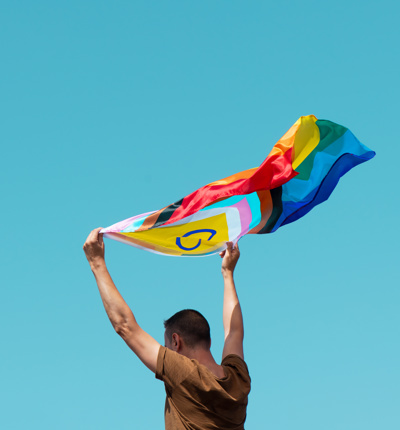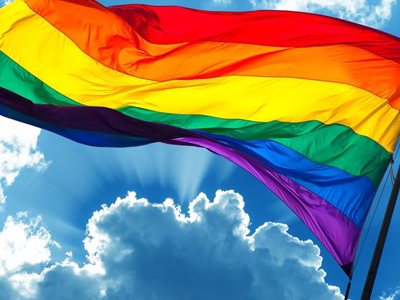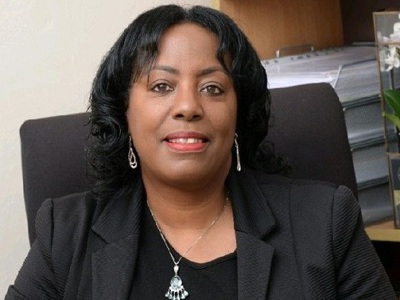
Refugee Week: Asylum Claims Based on Sexual Identity
In Refugee Week, Jerome Bond and Jacqueline McKenzie highlight inadequate Protections and Safeguards for those making asylum claims based on sexual identity
Posted on 18 June 2025
Asylum claims based on sexual identity have become an increasingly scrutinised area of UK asylum, exposing both the frailty of international protections and the shortcomings of domestic procedures.
Whilst LGBTQ+ individuals fleeing persecution benefit in theory from protections and safeguards under the Refugee Convention and human rights law, the reality is that too many are still failed by the system designed to protect them in light of biased evidential hurdles, stereotyping and flawed assessments of risk on return.
Legal Framework
More than 65 countries continue to criminalise consensual same-sex sexual activity which points to the pressing need to reform a system to be fit to offer protection.
In the UK, LGBTQ+ asylum claims are typically grounded in the 1951 Refugee Convention, which protects individuals with a well-founded fear of persecution due to their “membership of a particular social group”. In HJ (Iran) and HT (Cameroon) [2010] UKSC 31, the Supreme Court ruled that individuals cannot be expected to conceal their identity to avoid persecution. In effect, if a person would live discreetly because of fear of persecution, then they are entitled to asylum.
HJ Iran represented seminal precedent in LGBTQ+ asylum claims, where prior to the 2010 ruling LGBTQ+ asylum seekers could be expected to return to their country of origin if they could conceal their sexuality (even if they had a well-founded fear of persecution).
However, despite HJ Iran’s progress there remained an effective loophole where ‘discretion reasoning’ often applied to refuse asylum to those who are discreet for personal or social reasons.
Due to a watershed 2024 ruling in the European Court of Human Rights, in M.I v Switzerland Application no. 56390/21, where Leigh Day’s Immigration and Asylum team led by Jacqueline McKenzie were instructed as the representatives for Interveners in the case, African Rainbow Family and Stonewall, this weakness in the discretion test has been established as now clearly contrary to both domestic and Strasbourg jurisprudence.
Despite such advances, the UK’s asylum procedure continues to undermine the lived experience of many LGBTQ+ asylum seekers.
Evidential and Procedural Challenges
Despite sexual identity being inherently personal and not often supported by tangible documentation, particularly in contexts where individuals have hidden such aspects of their identity in order to survive, Home Office decision making often dismisses an applicant’s sexuality as not credible based on perceived inconsistencies often linked to Western stereotypes.
In effect, over a decade of research has consistently revealed serious flaws in how the Home Office assesses LGBTQI asylum claims.
In 2010, UK Lesbian & Gay Immigration Group’s (UKLGIG) ‘Failing the Grade’ report found that credibility was routinely denied on arbitrary grounds, such as late disclosure or lack of same-sex relationships in the UK.
The 2013 UKLGIG “Missing the Mark” report built on this, evidencing that applicants were regularly disbelieved if they had been in opposite-sex relationships, with officials failing to understand the fluidity and complexity of sexual identity.
In light of these failings, in 2014 the Home Office commissioned the Chief Inspector of Borders and Immigration, John Vine, to investigate the Home Office’s management of asylum claims made on the grounds of sexual identity. The ensuing "Vine Report” led the Home Office to publish an updated Asylum Policy Instruction: Sexual Orientation in Asylum Claims Version 5.0 in 2015, which forms the basis of the Asylum Policy Instruction used to this day by Home Office caseworkers.
By 2018, a further report ‘Still Falling Short’ from Rainbow Migration found that despite some improvements in the interview process in line with the 2014 Vine Report and the 2015 Asylum Policy Instruction, the Home Office often failed to follow their guidance, misapply the ‘discretion test’ in HJ Iran and set the standard of proof too high.
Despite being published over seven years ago, the findings of UKLGIG influential report highlighted entrenched disbelief and stereotyping in LGBTQI+ asylum decision, patterns that remain rife, as confirmed by the 2024 SEREDA report, discussed below, which documents ongoing bias in interpretation, unsafe accommodation and evidential hurdles.
These findings reinforce calls to lower the standard of proof required for asylum claims to pre National and Borders Act 2022 levels from ‘a balance of probabilities’ back to ‘a reasonable degree of likelihood’.
Asylum Accommodation and Vulnerability
In addition to evidential and procedural challenges, recent research paints a stark picture of the challenges of LGBTQ+ experiences within UK asylum accommodation and detention. The University of Birmingham and Rainbow Migration SEREDA 2024 study, building on the reports of four specialist support organisations, in 2024 alone, into the experience of LGBTQI+ in mainstream accommodation, found that such accommodation is generally unsafe for LGBTQI+ asylum seekers.
Following in-depth interviews with persons seeking asylum and a number of specialist support organisations, the Sereda Report found that regular incidents of homophobic harassment took place in shared housing, that LGBTQI+ identities were not considered a specific safeguarding risk in asylum accommodation and that there were often no policies or procedures to deal with homophobic or transphobic hate crimes with Home Office housing contractors.
Legal Aid Shortages
In this context of significant evidential burdens, discrimination in Home Office accommodation, the need for effective legal representation for LGBTQI+ asylum seekers is particularly acute. However, the immigration and asylum sector continues to undergo a crisis of representation, with research from Professor Jo Wilding finding that more than 57,000 asylum seekers, about 57% of applicants, were unable to access legal representation in 2024. The result is that those seeking asylum often fail at the first instance, and struggle to find representation at the appeal stage. Without access to representation, an access to justice crisis remains rife in the sector.
LGBTQI+ asylum seekers continue to face systemic barriers at every stage of the asylum process, from evidential challenges to unsafe detention, compounded by an access to justice crisis in the immigration and asylums sector. Urgent reform is needed to restore safety, dignity and justice to a process that fails those who are at most risk.

“Watershed” European Court of Human Rights ruling that gay man from Iran cannot be deported from Switzerland
A ruling by the European Court of Human Rights (ECtHR) that a gay man cannot be deported from Switzerland to Iran has been welcomed by Leigh Day immigration team head, Jacqueline McKenzie, who represented African Rainbow Family and Stonewall in the case.



